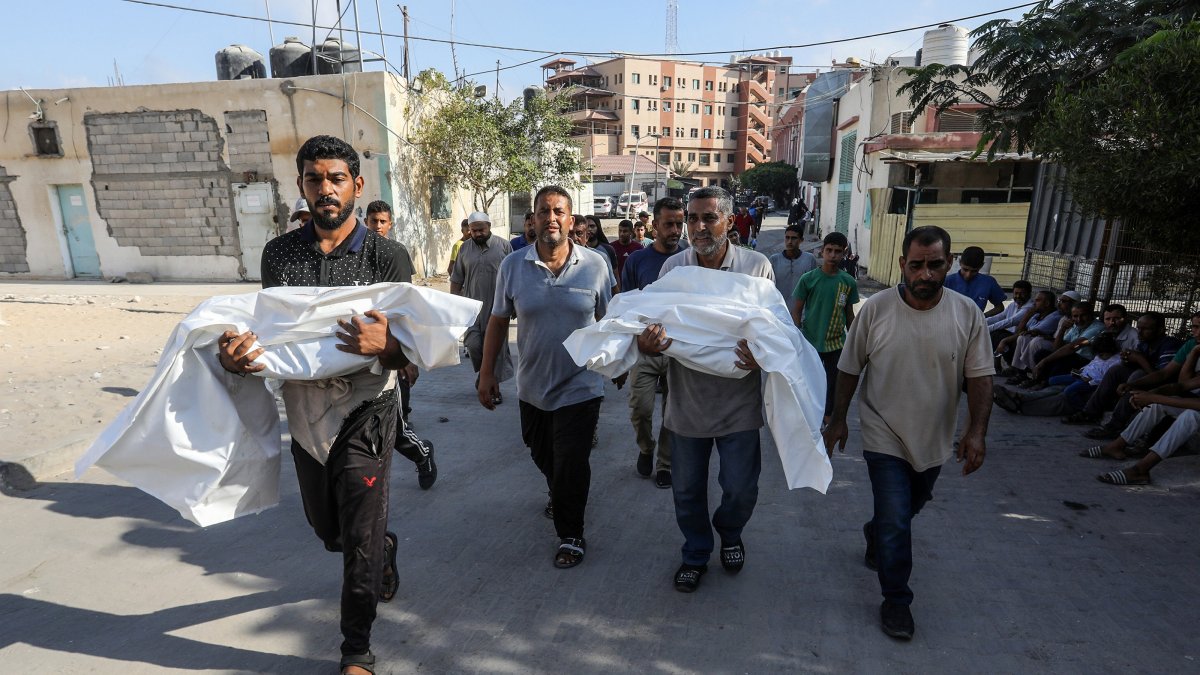President Recep Tayyip Erdoğan is expected to draw international attention to the situation in Gaza and call on U.N. member states to take action against Israel’s attacks during his address to the 80th United Nations General Assembly in New York on Tuesday.
Scheduled to depart Ankara on Monday, Erdoğan will deliver his speech during the high-level week of the General Assembly, which gathers leaders from 195 countries. He is slated to speak fourth and will also participate in the Palestine Conference on Sept. 22 and the U.N. Climate Summit on Sept. 24.
Erdoğan has long been a vocal advocate for Palestinian rights, emphasizing the need for an independent state with East Jerusalem as its capital. In previous U.N. addresses, he has repeatedly criticized Israel’s military operations in Gaza, calling on the international community to uphold international law and protect civilians. Last year, he urged nations that had yet to recognize Palestine to “stand on the right side of history” and take concrete steps toward Palestinian statehood.
While Gaza is expected to dominate his speech, Erdoğan will also reiterate the need for U.N. reform, arguing that the Security Council’s five permanent members disproportionately influence global decision-making. He has long advocated for a more democratic and effective U.N. capable of preventing and resolving crises, from humanitarian emergencies to climate disasters.
Erdoğan’s engagement at the U.N. dates back to his tenure as prime minister. He first addressed the General Assembly in 2005, emphasizing the importance of a U.N. able to mediate conflicts and maintain peace. In subsequent speeches, he highlighted crises in Syria, Libya, Somalia and Palestine, while also urging solutions to the Karabakh conflict and other regional disputes.
After his election as president in 2014, Erdoğan’s messages became even more prominent. He popularized the slogan “the world is bigger than five,” criticizing the veto powers of the Security Council for failing to address atrocities and humanitarian crises, including in Gaza. He has consistently pledged Türkiye’s support for Palestinian civilians and Jerusalem’s legal status while pressing for accountability at the U.N.
This year, Erdoğan is expected to invoke the slogan again while urging member states to confront Israel’s actions in Gaza.
Beyond Palestine, Erdoğan has consistently highlighted global humanitarian concerns. He has drawn attention to irregular migration, citing the death of Alan Kurdi in 2015 as emblematic of the Mediterranean’s refugee crisis, and climate-related disasters affecting Europe, Asia, Africa and the Americas. He has emphasized that such crises demand collective international action, pointing to Türkiye’s facilitation of the Black Sea Grain Initiative amid the Russia-Ukraine war as an example of effective diplomacy and humanitarian cooperation.
Erdoğan has also warned against the rise of terrorist organizations, noting the threats posed by groups such as Daesh, the PKK and the Gülenist Terrorist Group (FETÖ), which he describes as challenges not only to Türkiye but to the international community.
In previous speeches, he called for coordinated action among U.N. members to address terrorism and protect democratic institutions worldwide.
This year’s address comes amid heightened tensions in the Eastern Mediterranean and ongoing efforts at U.N.-level diplomacy. Erdoğan is expected to emphasize the urgency of protecting Palestinian civilians in Gaza, condemning Israeli attacks as violations of international law. He will urge member states to recognize Palestine, safeguard human rights and support the establishment of a sovereign Palestinian state with East Jerusalem as its capital.
The speech also provides Erdoğan a platform to reaffirm Türkiye’s broader role in regional stability. He is expected to highlight efforts to mediate crises, including the Ukraine war, the Syrian conflict and irregular migration challenges, while calling for multilateral cooperation to address climate disasters, food security and humanitarian emergencies.
Observers note that Erdoğan’s consistent focus on Gaza at the U.N. reinforces Türkiye’s diplomatic identity as a defender of Palestinian rights and international justice. By combining humanitarian advocacy with calls for political accountability, he aims to mobilize U.N. member states to respond to civilian suffering and uphold the principles of international law.
The 80th U.N. General Assembly is expected to host high-level participation from 195 countries, offering Erdoğan an opportunity to meet with global leaders on the sidelines of the assembly. His participation in the Palestine Conference and the U.N. Climate Summit will further complement his speech, emphasizing Türkiye’s commitment to both regional peace and global humanitarian cooperation.
Erdoğan’s U.N. addresses have historically drawn international attention, particularly for their emphasis on Palestine, human rights and U.N. reform. This year, his speech is expected to continue that trajectory, urging the global community to stand against Israeli attacks, protect civilians in Gaza, and advance justice through multilateral institutions.

The Daily Sabah Newsletter
Keep up to date with what’s happening in Turkey,
it’s region and the world.
SIGN ME UP
You can unsubscribe at any time. By signing up you are agreeing to our Terms of Use and Privacy Policy.
This site is protected by reCAPTCHA and the Google Privacy Policy and Terms of Service apply.

